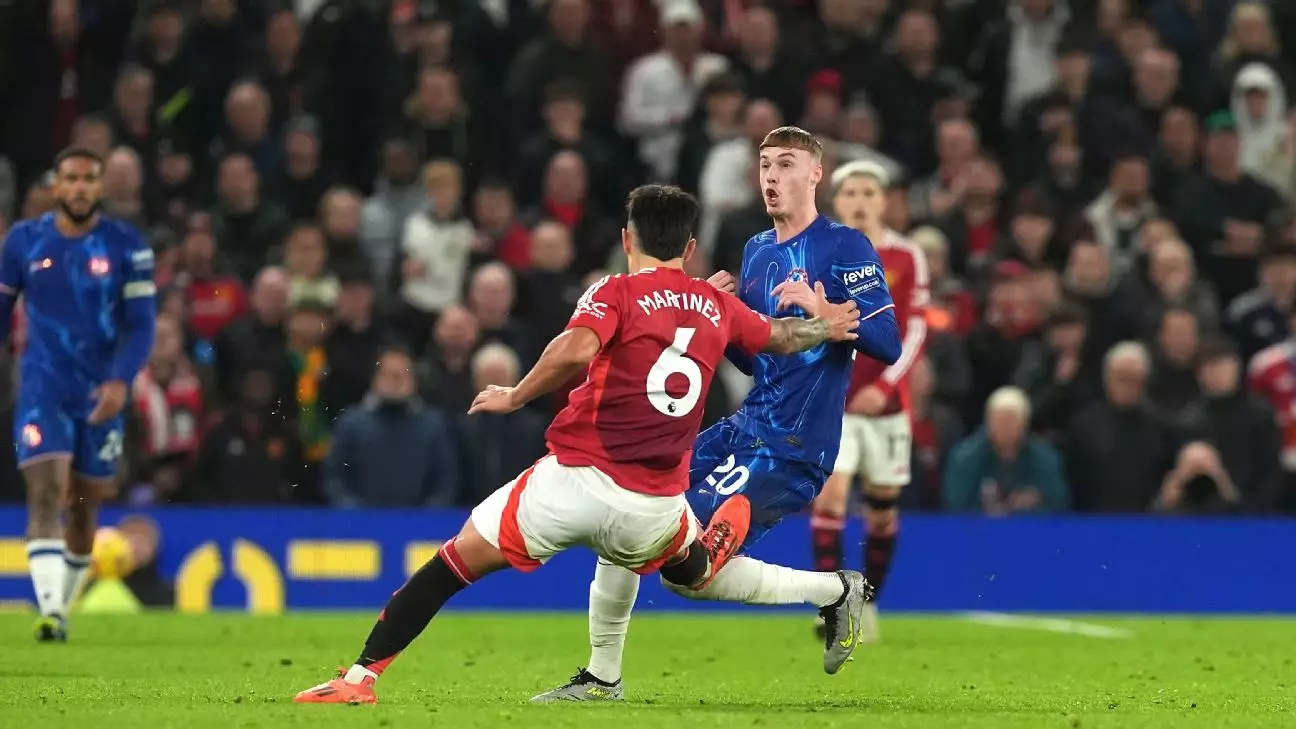In the realm of football, crucial decisions made by referees often become the focal point of discussions, igniting debates regarding their implications on the game. One such incident transpired during the recent Premier League encounter between Chelsea and Manchester United, where a challenge by United’s Lisandro Martínez on Chelsea’s Cole Palmer raised eyebrows. Chelsea head coach Enzo Maresca didn’t hold back in his criticism of the officiating, labeling Martínez’s challenge a clear red card offense.
During the added time of the match, Martínez made a reckless tackle on Palmer, catching him high on the knee and prompting the referee, Robert Jones, to brandish a yellow card. This decision drew immediate scrutiny, with many observers noting that the challenge could have resulted in a more severe penalty for the defender. The referee’s decision was upheld by Video Assistant Referee (VAR), who determined that the foul was reckless but did not constitute serious foul play.
Maresca highlighted the nature of Martínez’s tackle, asserting that the absence of intention to play the ball and the clear targeting of Palmer warranted a red card. His sentiments echoed those of former Manchester United captain Roy Keane, who commented on the tackle’s severity, calling Martínez “a lucky boy.” The incident underscores the constant tension between player safety and the interpretations of the rules by officials.
The use of VAR has been a controversial addition to football, often failing to achieve its intended purpose of providing clarity and justice on the pitch. In this case, the technology was employed, yet it ultimately upheld the referee’s initial decision—one that many argue could have dire consequences for player safety. The interpretation of a reckless challenge can often be subjective, leaving room for considerable debate among coaches, pundits, and fans alike.
Maresca’s assertion that a clear lapse in judgment existed is reflective of broader frustrations within the sport regarding the consistency of officiating. His comments resonate with a growing demand for transparency and accountability in how such decisions are communicated and justified. Football purists often argue for the restoration of referee autonomy, but the human element remains inherently flawed, evidenced by this incident.
Shared Perspectives from Coaches and Pundits
While the perspectives shared by Maresca and Keane leaned towards criticism of the officiating, contrasting opinions did emerge. Ruud van Nistelrooy, interim coach for United, downplayed the severity of the incident, admitting he had yet to see the replay. This divergence in opinions is familiar in football, where personal loyalties often colors interpretations of events on the pitch.
The disparity in perceptions underscores the subjective nature of football commentary and highlights the difficulty referees face in real-time. Ultimately, the incident serves as a stark reminder of the ongoing debates that surround officiating in football, prompting discussions about potential reforms needed to improve clarity and fairness in decision-making.
The draw between Chelsea and Manchester United revealed more than just the scoreboard; it showcased the intense scrutiny referees are under, influenced by the opinions of players, coaches, and pundits. As the football community seeks to strike a balance between regulatory enforcement and fair play, incidents like Martínez’s tackle will undoubtedly fuel ongoing debates about officiating standards and player safety in the beautiful game.

